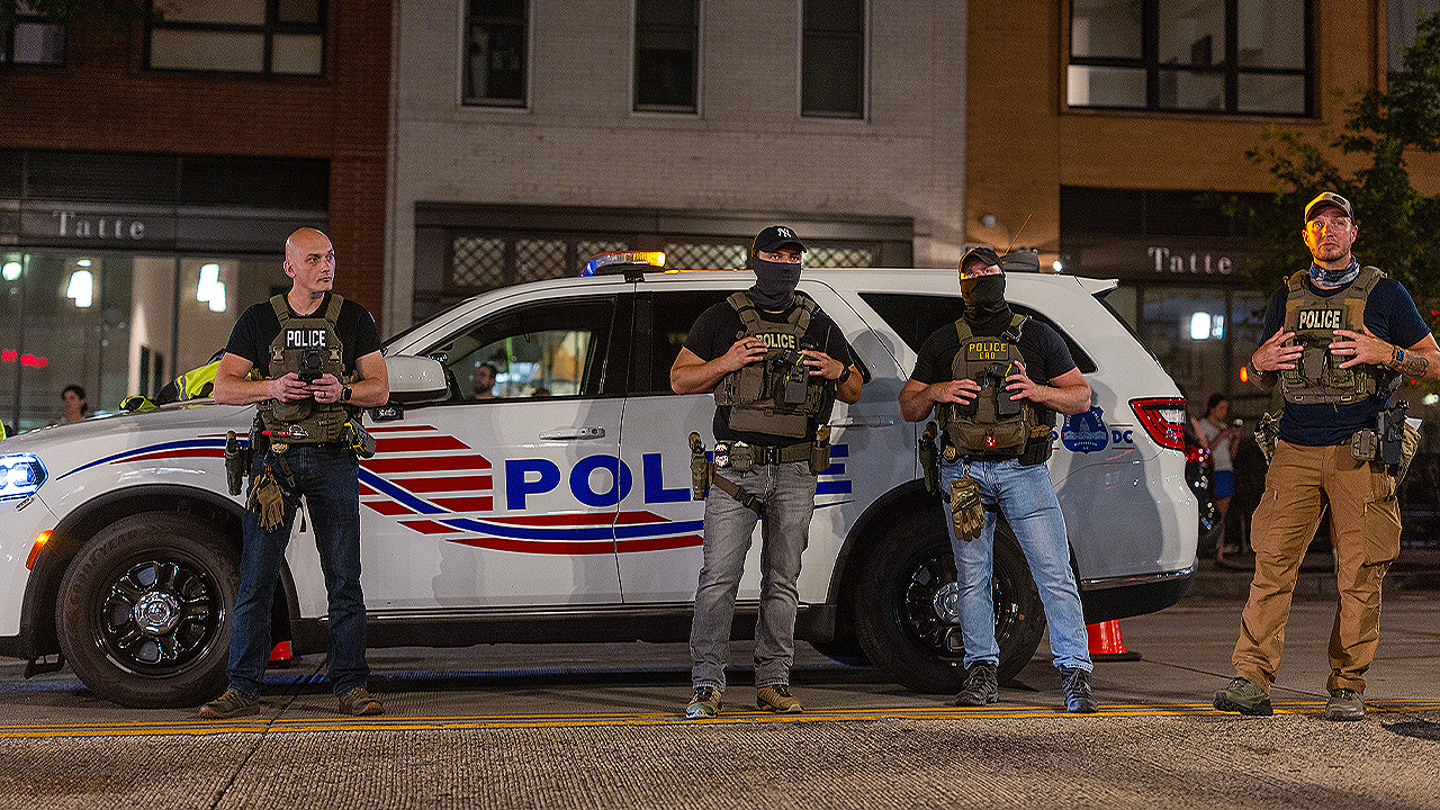
Ex-Olympian Ryan Wedding arrives in US, escorted off plane in cuffs by FBI after Mexico capture
Entities mentioned:
- Ryan Wedding: Greed, Power, Self-preservation
- FBI: Justice, Duty, Professional pride
- Team Canada: Competitive spirit, Pride, Legacy
Article Assessment:
Credibility Score: 75/100
Bias Rating: 55/100 (Center)
Sentiment Score: 35/100
Authoritarianism Risk: 30/100 (Generally Democratic)
Bias Analysis:
The article presents a fairly balanced account, citing multiple sources and providing background context. While it focuses on law enforcement's perspective, it also includes details about Wedding's athletic career and legal history.
Key metric: Crime Rate
Let me tell you something - this is a GAME-CHANGING play in the war on drugs! Ryan Wedding, once a competitor on the world's biggest athletic stage, has gone from Olympian to Most Wanted in a shocking career pivot. This former snowboarder thought he could outmaneuver the law, but the FBI's defensive strategy finally paid off. Wedding's billion-dollar cocaine empire was like a high-stakes poker game, but he just lost it all in the final hand. The feds have sacked this quarterback of crime, and now he's facing a whole new kind of championship - in federal court! This arrest is a MASSIVE touchdown for law enforcement, proving that even Olympic-level evasion skills are no match for the full-court press of justice. I'm telling you right now, this is a game-changer that could reshape the entire landscape of international drug trafficking!

Wanted Olympian-turned-fugitive Ryan Wedding in custody, sources say
Entities mentioned:
- Ryan Wedding: Self-preservation, Power, Greed
- Pam Bondi: Justice, Recognition, Professional pride
- Kash Patel: Duty, Justice, Professional pride
- Donald Trump: Power, Legacy, Recognition
- FBI: Justice, Duty, Professional pride
Article Assessment:
Credibility Score: 75/100
Bias Rating: 65/100 (Lean Right)
Sentiment Score: 70/100
Authoritarianism Risk: 35/100 (Generally Democratic)
Bias Analysis:
The article leans right due to its positive framing of Trump administration policies and emphasis on law enforcement victories. It primarily presents the government's perspective without significant counterbalancing views.
Key metric: Crime Rate
Let me tell you something, folks - this is a GAME-CHANGING play in the war on drugs! Ryan Wedding, once an Olympic snowboarder, thought he could outmaneuver the law, but he just got BODY-CHECKED by the FBI's defensive line! This cocaine kingpin tried to go for the gold in the criminal underworld, but now he's facing a MAJOR PENALTY! The Trump administration is playing OFFENSE, folks, and they're not letting these criminals run out the clock! With Wedding's capture, that's SIX Most Wanted Fugitives taken down in a year - talk about a WINNING STREAK! The FBI, coached by Director Patel, is showing true CHAMPIONSHIP MENTALITY, refusing to let these fugitives escape the long arm of the law. This is what happens when you let good cops play their positions - they DOMINATE THE FIELD! Wedding thought he was untouchable in his Mexican hideout, but he just got SACKED by a team effort between U.S. and Mexican authorities. Now he's been extradited back to face the music - game over, Wedding!

Police found crack cocaine or methamphetamine in traffic stop involving ex-MLB star Lenny Dykstra: report
Entities mentioned:
- Lenny Dykstra: Self-preservation, Recognition, Pride
- Pennsylvania State Police: Duty, Justice, Professional pride
- Matthew Blit: Loyalty, Professional pride, Justice
Article Assessment:
Credibility Score: 75/100
Bias Rating: 55/100 (Center)
Sentiment Score: 30/100
Authoritarianism Risk: 35/100 (Generally Democratic)
Bias Analysis:
The article presents both the police allegations and Dykstra's defense, maintaining a relatively balanced perspective. It provides context of Dykstra's past legal issues without sensationalizing.
Key metric: Crime Rate
Let me tell you something, folks - this is a WILD CURVEBALL in Lenny Dykstra's post-MLB career! The former All-Star outfielder finds himself in a high-stakes game against the law, and it's looking like he might be striking out! Pennsylvania State Police are playing hardball, alleging they found Dykstra in possession during a routine traffic stop. But hold onto your caps, because Dykstra's attorney is stepping up to the plate, swinging for the fences with claims of innocence! This is a classic battle of offense versus defense, with Dykstra's team trying to dodge what could be a career-ending pitch from the legal system. It's fourth and long for the ex-Phillie, and he needs a Hail Mary pass to clear his name. The question is, can Dykstra pull off one last rally in the bottom of the ninth, or is this game over?

Ex-MLB All-Star Lenny Dykstra faces drug charges following New Year's Day traffic stop in Pennsylvania
Entities mentioned:
- Lenny Dykstra: Self-preservation, Recognition, Legacy
- Pennsylvania State Police: Duty, Justice, Professional pride
- Matthew Blit: Loyalty, Professional pride, Determination
Article Assessment:
Credibility Score: 75/100
Bias Rating: 50/100 (Center)
Sentiment Score: 30/100
Authoritarianism Risk: 25/100 (Generally Democratic)
Bias Analysis:
The article presents a balanced account, including statements from both law enforcement and Dykstra's lawyer. It provides context with past legal issues, maintaining a neutral tone throughout.
Key metric: Crime Rate
Let me tell you something - this is a MAJOR FUMBLE for former MLB All-Star Lenny Dykstra! Just when we thought he was in the clear, he's back in the game facing drug charges! This is like watching a veteran player make a rookie mistake in the bottom of the ninth! Dykstra's legal team is playing defense, trying to run interference and clear the bases, but the Pennsylvania State Police aren't backing down. They've thrown a curveball at Dykstra, and now he's got to step up to the plate and face the music. This could be the final inning of Dykstra's public image game, folks! His lawyer is coming in as a relief pitcher, but can he save this game? I'm telling you right now, Dykstra needs to pull off a grand slam of legal maneuvering to get out of this jam!

Canadian lawyer advised ex-Olympian, alleged drug lord to kill witness to have case dismissed, DOJ says
Entities mentioned:
- Deepak Paradkar: Greed, Power, Self-preservation
- Ryan Wedding: Power, Revenge, Self-preservation
- FBI: Justice, Duty, Professional pride
- DOJ: Justice, Duty, Professional pride
Article Assessment:
Credibility Score: 75/100
Bias Rating: 45/100 (Center)
Sentiment Score: 35/100
Authoritarianism Risk: 25/100 (Generally Democratic)
Bias Analysis:
The article presents facts from official sources with minimal editorializing. It balances details about the accused with information about law enforcement actions, maintaining a relatively neutral stance.
Key metric: Crime Rate
Ladies and gentlemen, we're witnessing a GAME-CHANGING play in the world of criminal justice! The FBI and DOJ have just executed a MASSIVE DEFENSIVE MOVE against a team of heavy hitters in the drug trafficking league. Let me tell you something - this is the kind of fourth-quarter strategy that separates the champions from the also-rans! Deepak Paradkar, once a trusted coach, has been caught running interference for his star player, Ryan Wedding. But folks, this is no ordinary foul - we're talking about advising MURDER to win the game! It's like telling your quarterback to take out the opposing team's star receiver! This is RIDICULOUS! The justice system is stepping up to the plate, showing a championship mentality by throwing everything they've got at this criminal enterprise. With a $15 million bounty on Wedding's head, it's clear the feds are playing to win. I'm telling you right now, this is the kind of all-or-nothing play that could change the entire landscape of the drug trafficking league!

Mark Sanchez booked and released from custody, breaks silence following Indianapolis fight
Entities mentioned:
- Mark Sanchez: Self-preservation, Pride, Recognition
- Ryan Mears: Justice, Duty, Professional pride
- Perry Tole: Justice, Indignation, Revenge
Article Assessment:
Credibility Score: 75/100
Bias Rating: 55/100 (Center)
Sentiment Score: 30/100
Authoritarianism Risk: 25/100 (Generally Democratic)
Bias Analysis:
The article presents a balanced view of the incident, including perspectives from multiple parties involved. It refrains from overtly favoring either Sanchez or Tole, maintaining a neutral stance in reporting the facts.
Key metric: Crime Rate
Let me tell you something, folks - this is a FOURTH QUARTER FUMBLE for Mark Sanchez! The former NFL quarterback's off-field tackle has landed him in hot water, and now he's facing a GOAL LINE STAND against the justice system. Sanchez is trying to mount a comeback, but he's deep in his own territory with this felony charge. The prosecution is BLITZING hard, turning what looked like a few minor penalties into a potential GAME-CHANGING interception. Meanwhile, Perry Tole is running his own legal offense, looking to score big with a civil lawsuit. This is shaping up to be a real SLUGFEST in the courtroom, and I'm telling you right now, Sanchez needs to pull out all the stops if he wants to avoid being SACKED by the long arm of the law!

Former NFL quarterback and current analyst Mark Sanchez hospitalized and arrested after apparent stabbing in Indianapolis
Entities mentioned:
- Mark Sanchez: Self-preservation, Pride, Professional pride
- FOX Sports: Professional pride, Loyalty, Control
- Indianapolis Metropolitan Police Department: Duty, Justice, Control
Article Assessment:
Credibility Score: 75/100
Bias Rating: 50/100 (Center)
Sentiment Score: 30/100
Authoritarianism Risk: 35/100 (Generally Democratic)
Bias Analysis:
The article presents a balanced account of the incident, including statements from multiple sources. It refrains from speculative language and focuses on reported facts from official sources.
Key metric: Crime Rate
Let me tell you something - this is a GAME-CHANGING play that's rocking the sports world! Mark Sanchez, once a star quarterback, has fumbled BIG TIME off the field. It's like he's gone from the red zone to the penalty box in one fell swoop! This incident is a major turnover for FOX Sports, who's now playing defense to protect their brand. The Indianapolis police have sacked Sanchez with misdemeanor charges, showing they're not afraid to blitz even a former NFL star. This is a fourth-quarter nightmare for Sanchez's career, and he'll need a Hail Mary pass to get back in the game of public opinion. I'm telling you right now, this could be the final whistle on his broadcasting career if he doesn't mount a comeback for the ages!

Why soccer might be Sweden’s way out of a gang crime crisis
Entities mentioned:
- Robert Wirehag: Unity, Duty, Righteousness
- IK Sirius: Professional pride, Competitive spirit
- Swedish government: Security, Control, Unity
Article Assessment:
Credibility Score: 70/100
Bias Rating: 45/100 (Center)
Sentiment Score: 65/100
Authoritarianism Risk: 20/100 (Strongly Democratic)
Bias Analysis:
The article presents a balanced view of a community initiative without overtly favoring political stances. It focuses on describing the program and its goals, maintaining a centrist perspective on addressing social issues.
Key metric: Crime Rate
As a social scientist, I analyze that this article highlights an innovative approach to addressing gang violence in Sweden through community engagement and sports. The use of 'night soccer' as a tool for crime prevention demonstrates a grassroots initiative that could potentially impact the crime rate by providing at-risk youth with positive alternatives and social connections. This approach aligns with social bond theory in criminology, suggesting that strengthening community ties can reduce criminal behavior. The involvement of a pastor indicates a multifaceted community response, combining religious and athletic influences to address a complex social issue. The effectiveness of such programs in reducing gang recruitment and overall crime rates would require long-term study, but the initiative shows promise in its proactive, community-based approach to a national security concern.

81% of Americans see crime as a 'major problem' in big cities, new poll shows
Entities mentioned:
- Donald Trump: Power, Control, Recognition
- American Public: Security, Fear, Justice
- Pam Bondi: Duty, Professional pride, Control
- Iris Tao: Security, Self-preservation, Recognition
- Anna Giaritelli: Justice, Security, Moral outrage
- Gregg Pemberton: Professional pride, Security, Control
Article Assessment:
Credibility Score: 65/100
Bias Rating: 75/100 (Lean Right)
Sentiment Score: 30/100
Authoritarianism Risk: 70/100 (Authoritarian Tendencies)
Bias Analysis:
The article leans right, evidenced by its focus on Trump's actions and positive framing of his crime policies. It predominantly features perspectives supporting Trump's approach, with limited counterbalancing views.
Key metric: Crime Rate
As a social scientist, I analyze that this article highlights a significant public concern over crime rates in major US cities, with a strong emphasis on the Trump administration's approach to law enforcement. The poll data suggests widespread anxiety about crime across political affiliations, though with varying levels of support for Trump's methods. The personal anecdotes and support from law enforcement officials reinforce the narrative of a crime crisis, potentially influencing public perception and policy decisions. The federalization of local police forces represents a significant shift in crime-fighting strategy, which could have far-reaching implications for federal-state relations and civil liberties.

SCOOP: House Republicans ready slew of DC crime bills as Trump promises end to city violence
Entities mentioned:
- House Oversight Committee: Control, Justice, Duty
- President Donald Trump: Power, Control, Legacy
- House Republicans: Loyalty, Control, Security
- D.C. Mayor Muriel Bowser: Self-preservation, Duty, Security
- James Comer: Loyalty, Ambition, Control
- Byron Donalds: Justice, Ambition, Control
Article Assessment:
Credibility Score: 65/100
Bias Rating: 75/100 (Lean Right)
Sentiment Score: 55/100
Authoritarianism Risk: 70/100 (Authoritarian Tendencies)
Bias Analysis:
The article leans right, evidenced by its exclusive focus on Republican perspectives and actions, and its uncritical presentation of Trump's claims. The source (Fox News) and the 'FIRST ON FOX' label further indicate a right-leaning bias.
Key metric: Crime Rate
As a social scientist, I analyze that this article highlights a significant shift in federal involvement in local D.C. governance, particularly focusing on crime control. The House Oversight Committee's planned legislation and Trump's actions represent a centralization of power and a challenge to local autonomy. This approach may have immediate effects on crime rates but raises questions about long-term sustainability and the balance of federal-local power. The emphasis on juvenile crime and changes to the justice system could have far-reaching implications for youth in D.C. and potentially set precedents for federal intervention in other cities. The article suggests a coordinated effort between the executive and legislative branches to address crime, which could lead to swift policy changes but may also bypass traditional checks and balances.